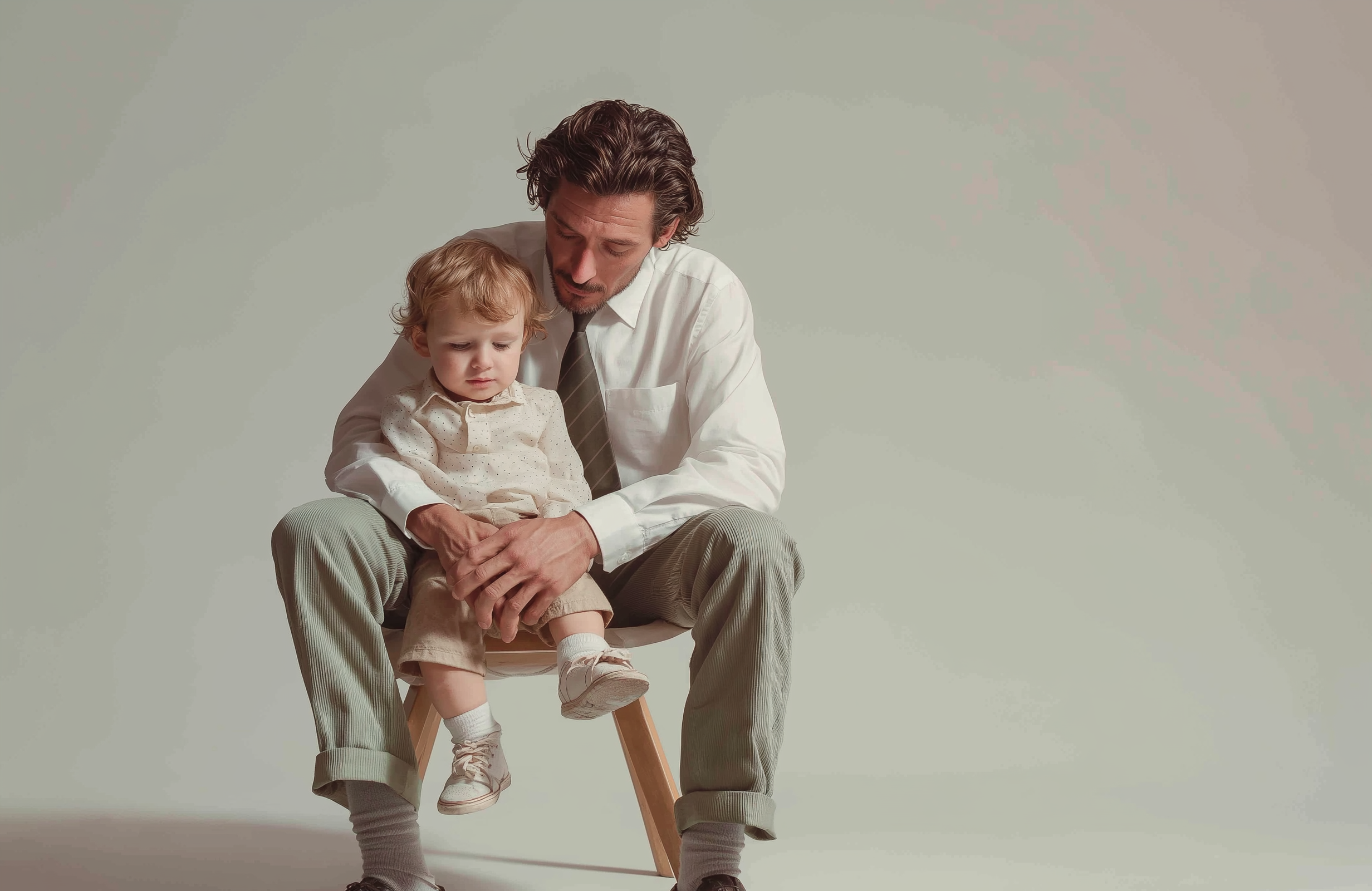To understand how these shifting ideals of masculinity play out in everyday life, we spoke with fathers across cultures who are redefining what it means to be a man.The fathers interviewed, aged between 40 and 60, and from countries including Germany, India and Spain, shared a critical view of the growing “Alpha Male” movement online. While they recognized elements of it from their own upbringing, most described it as a harmful step backwards. A „glorification of emotional suppression“ and „dominance that reinforces outdated stereotypes and undoes progress in how men relate to themselves and others“. One called it “a loud echo of a masculinity we’ve worked hard to unlearn.” Another warned that it risks creating new generations of emotionally distant, disconnected men. A clear tone emerged in their reflections. One of emotional honesty, self-awareness, and a conscious departure from traditional male ideals. The “Alpha Male” was a familiar figure to them: dominant, assertive, emotionally reserved, and always in control. But few saw that version of manhood as something they wanted to pass on. Some viewed it as damaging, “a performance that leaves little room for being human,”. Instead, they spoke of a gradual shift toward a masculinity rooted in integrity, responsibility, empathy and the courage to be emotionally present.
For most, this change was not sparked by a single moment, but by years of lived experience, especially as parents. One father reflected that he had come to realize “showing love, softness and vulnerability to my child wasn’t a weakness but a strength.” Another mentioned that becoming a father had forced him to confront parts of himself he had ignored for years: “I wanted to raise a better man than I had learned to be.”
The traits they now aim to model and nurture in their sons are telling: kindness, curiosity, self-awareness, respect. These are not seen as opposites to strength, but as its foundation. Emotional openness, in particular, was emphasized again and again. They want their children to understand that hard days, tears and uncertainty are not failures of character, but normal parts of life.
Respect, they noted, also includes how their sons treat others, especially girls and women. Teaching equality, mutual respect, and consent was seen as an essential part of raising emotionally aware and responsible young men. It wasn’t framed as a separate lesson, but as a natural extension of the values they model daily, like empathy, kindness, and integrity in all relationships.
Old beliefs like “men don’t cry” or “you always have to be strong” were widely rejected. These ideas, they said, limit emotional development and create unnecessary distance, from others and from oneself. “I used to think emotional control made me strong. Now I think emotional connection does,” one noted. What they hope to pass on instead is the idea that being a man doesn’t mean being invulnerable, it means being real.
Listening played a central role in many of their approaches to parenting. They described the importance of meeting their children with patience and without judgment. Not rushing to fix, but being present and validating. Emotions, one of them noted, are “not problems to fix, they’re signals to understand.”
When asked what message they’d most like their sons to carry into adulthood, the answers converged on a quiet kind of wisdom: Don’t try to be everything to everyone. Know your values. Stay curious. Give yourself permission to rest, to fail, to evolve. Competition is fine, but not at the cost of connection, purpose, or self-worth.
The tone of these conversations was clear. Thoughtful, tender and quietly radical. In choosing to raise their sons differently, these fathers are also reshaping masculinity itself. Not by rejecting strength, but by redefining where it truly lies.
By choosing connection over control and presence over performance, these fathers offer a hopeful counter-narrative to rigid ideals of manhood. They show that strong, emotionally attuned father figures don’t just raise healthier children, they help reshape what it means to be a man for future generations.
Intern SheSkillz Global
-
Philine Urferhttps://www.sheskillzglobal.com/author/philine-urfer/
-
Philine Urferhttps://www.sheskillzglobal.com/author/philine-urfer/
-
Philine Urferhttps://www.sheskillzglobal.com/author/philine-urfer/















